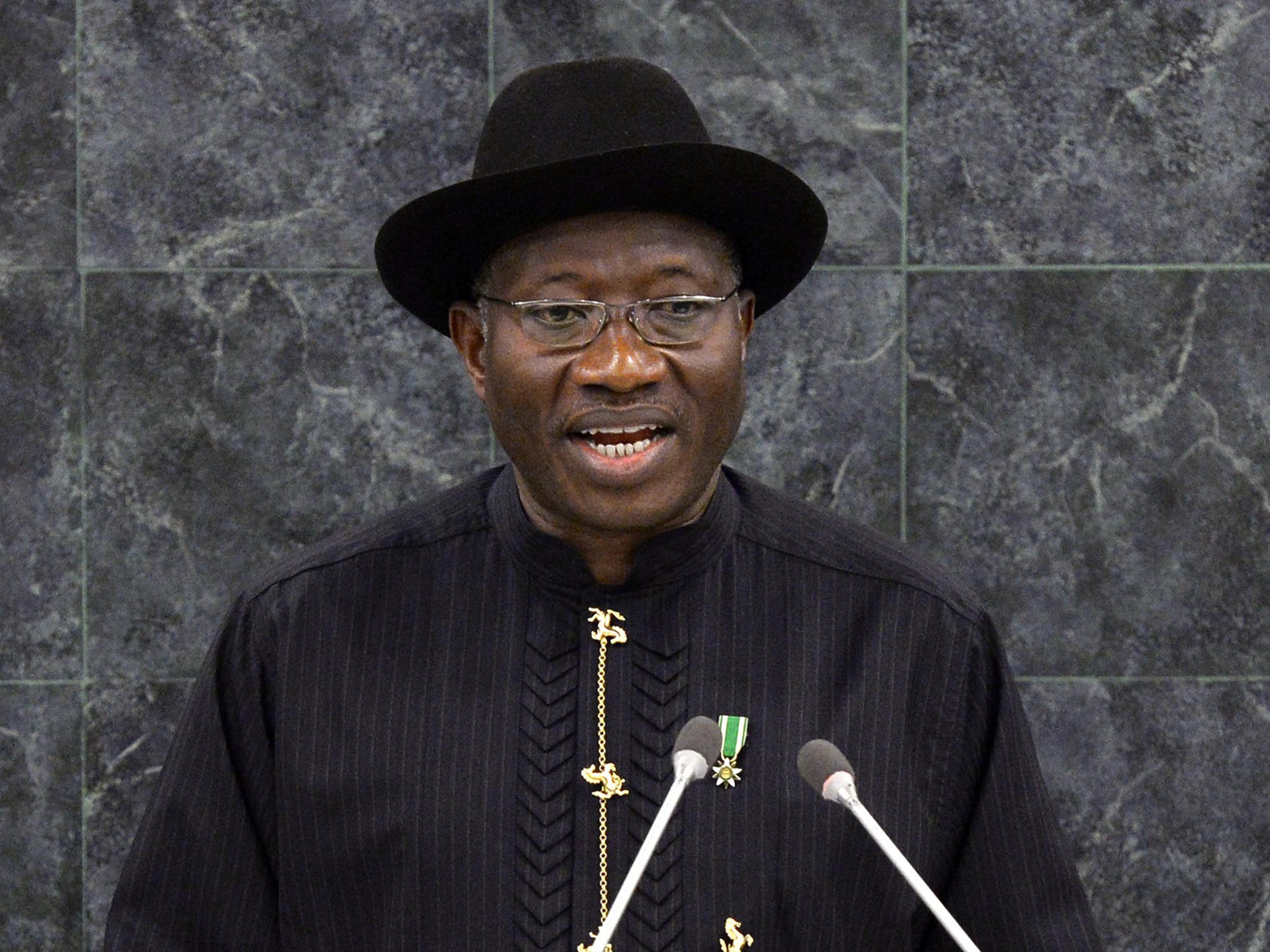President Goodluck Jonathan orders inquiry into Nigeria’s ‘missing’ $20bn of oil revenue
Ousted Central Bank Governor, Lamido Sanusi, claims the money has been diverted to fund campaigning for next year's elections

President Goodluck Jonathan has ordered a forensic audit by international firms into $20bn (£12bn) allegedly missing from petroleum sales, following weeks of public outrage and demands by a Senate committee and the Finance Minister.
Mr Jonathan’s announcement came buried in a statement attacking the ousted Central Bank Governor Lamido Sanusi, insisting that his suspension last month was unrelated to his whistleblowing about what it calls “the phantom missing funds”.
When Mr Senusi first raised concerns over the missing funds, Mr Jonathan, whose leadership has been dogged by one corruption scandal after another since he took power in 2010, promptly levelled counter charges of “financial recklessness and misconduct” against the whistleblower, an internationally respected fiscal hawk who for nearly five years has headed the country’s Central Bank, and ordered his suspension. Mr Jonathan’s statement denied Mr Sanusi’s charges that the money has been diverted to fund campaigning for February 2015 elections, when the governing People’s Democratic Party will face its biggest challenge since taking power in 1994 elections that ended decades of military dictatorship.
Mr Sanusi said the money came from sales made between January 2012 and July 2013 by the state-owned Nigeria National Petroleum Corp that was not remitted to the treasury. It is unclear whether the money, at a rate of more than $1bn a month, is still being diverted.
The campaign against Mr Sanusi, 52, has alarmed foreign investors, who have long seen him as a steady hand and bulwark against pervasive corruption in Africa’s top oil producer and second-largest economy.
Mr Sanusi is much more popular abroad than he is in at home. He has earned international plaudits during his tenure at the Central Bank, particularly for his efforts in 2009 to clean up a rotten banking sector, ousting several bank executives in the process. Investors also credit him with reigning in inflation and stabilising the Nigerian currency, the naira, and in 2011 he was named among Time magazine’s 100 most influential people.
The presidential statement denies Mr Sanusi’s latest charges that the government is trying to bury the mystery of the missing petrodollars.
“In keeping with its avowed commitment to full transparency, openness and accountability in governmental affairs, the federal government has authorised the engagement of reputable international firms for the recommended forensic audit” of the Nigerian National Petroleum Corp accounts, it says.
When he was re-elected in 2011, Jonathan promised to fight corruption that keeps an elite fabulously wealthy while the majority of Africa’s most populous nation of some 170 million people struggle to survive on less than $1 a day, according to UN statistics.
But now Mr Jonathan’s administration is seen as shielding the corrupt, most notably by the pardon issued by the President last year of the ex-Governor from his home state of Bayelsa, Diepreye Alamieyeseigha, because he was “remorseful” after being convicted of money laundering. Alamieyeseigha’s properties and funds in the United States and Britain were seized as proceeds of corruption in recent years and he had jumped bail from Britain in 2005.
Previous investigations of missing public funds have ended without resolution. No one has been prosecuted for a fuel-subsidy scam uncovered in 2012, in which some $17bn was paid to companies for fuel that never was delivered.
AP
Join our commenting forum
Join thought-provoking conversations, follow other Independent readers and see their replies
Comments